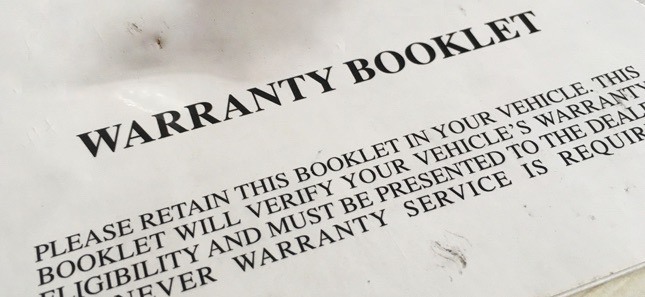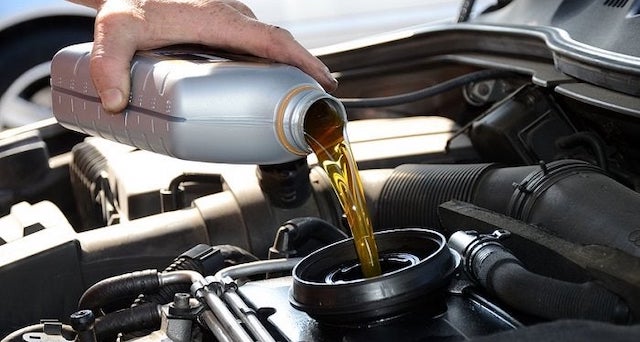Lifetime Oil Filters And Your Factory Warranty
Worried that a lifetime oil filter might void your factory warranty? Rest assured that – as far as the factory is concerned – it’s completely acceptable to use a lifetime oil filter. As long as you maintain records of every oil change, you won’t have to worry about your factory engine warranty.

In this post, we’ll explain:
- What automakers expect in terms of maintenance and record keeping
- How automakers typically invalidate warranty claims
- How federal laws protect consumers from bogus claims of an invalid warranty
- What you can do if your local dealership refuses to warranty a repair
First, What Does A Typical Factory Warranty Cover?
There are two types of warranties:
- Bumper-to-bumper warranties, which cover everything but wear items (like tires, brake pads, shocks, etc.)
- Powertrain warranties, which typically cover all rotating and/or lubricated parts (engine components, transmission, differentials, etc.)
Most new vehicles sold today have a 3 year, 36,000 mile bumper to bumper warranty, and a 5 year, 75,000 mile powertrain warranty. Some manufacturers offer longer warranty periods, but these two warranties are generally the minimum.
If you change your engine oil at the recommended interval, your powertrain warranty should cover any issues that pertain to lubrication of the internal components. While internal engine component failure is extremely rare these days, it’s also very costly. For this reason, you want to make sure you maintain your factory powertrain warranty.
How Do Automakers Feel About Lifetime Oil Filters?

While there’s never been an official announcement, there’s no reason to believe automakers have ever had an issue with lifetime oil filters.
- We’ve been selling our filters for decades. Hundreds of thousands of people have bought our filters, put them on brand new vehicles, and never had a problem.
- Our lifetime oil filters are used in extreme circumstances. Race teams use our filters, including race teams that are affiliated with or partially sponsored by the OEMs. Our filters are also used on heavy duty trucks, in construction and mining, in aviation…the list is long.
And even though we’ve been around for decades, the automakers have not warned consumers not to buy our products, or even said anything negative about lifetime oil filters.
Not to mention, a lifetime filter couldn’t possibly cause an engine problem. It works just like any other oil filter – the only difference is that our filters are made to be cleaned are re-used. As long as you change/replace your engine oil at the recommended interval, you have no reason to fear a warranty problem.
How Do Automakers Know You Changed Your Oil?

If you have a major engine problem that should fall under the warranty, you’ll need to take your vehicle to the local dealership for diagnosis. If the dealership determines that your engine problem is warrantable, they may request records of all your engine maintenance.
Whether you take your vehicle to a shop for oil changes, or you do them yourself, you need the same information:
- Receipts showing that you purchased maintenance or oil
- Documentation showing that you’ve been staying on top of oil changes
If you can provide these things – and “documentation” is often just a letter – that should be sufficient proof.
NOTE: A lot of people think that there’s some big master database of all oil changes, but nothing could be further from the truth. Even if you only take your vehicle to the dealership, many dealerships keep only a year or two’s worth or records. And most automakers don’t have electronic systems for tracking maintenance. So, very often, “proof” that you changed your oil comes down to paper records.
What If The Dealership Says the Warranty Is Invalid Because The Oil Wasn’t Changed?

If you have an engine problem, and the dealer requests records of all your oil changes, it’s likely because they suspect insufficient maintenance. Hopefully, you have extensive records of all the oil you’ve purchased, when you purchased it, and you’re able to give the dealership a letter with a timeline showing when you change your oil.
If you can’t provide this kind of evidence, the dealer may say that your warranty is invalid because you didn’t change your oil. However, you can contest this. And if you changed your oil, you should absolutely contest the dealership’s claim.
Federal Law Protects Consumers From Arbitrary Warranty Invalidation
The Magnuson-Moss Warranty Act, enacted in 1975, requires manufacturers of all products to honor their product warranties unless the manufacturer can prove the consumer did not follow recommendations. If the warranty on your engine requires you to change your oil, the automaker needs to prove you didn’t change your oil to invalidate your warranty.
Granted, most automakers require you to provide documentation of your oil changes as a condition of the warranty, but still. If you’ve provided the dealership with records, the burden is on them to prove your records are false.
Keep Maintenance Records, And Your Warranty Is Protected

The big takeaway here is that you can avoid warranty issues if you keep good records. Everytime you buy oil, keep the receipt. Every time you change the oil, write down the date in a logbook. This goes for other types of maintenance too:
- Fluid replacements like coolant flushes, transmission drain and fill, differential oil drain and fill, etc.
- Brake service, like replacing brake pads and rotors
- Fuel filter replacements, air filter replacements, etc.
If you keep receipts for all of this stuff, and write down dates you do each maintenance item in a logbook, you won’t have to worry. And if you take your vehicle to a repair shop rather than doing this stuff yourself, just keep the receipts.
